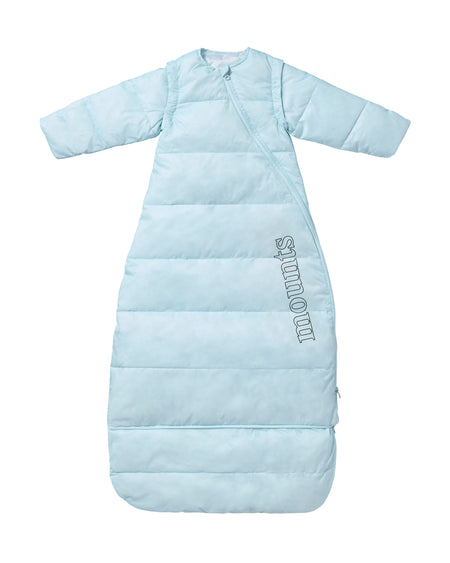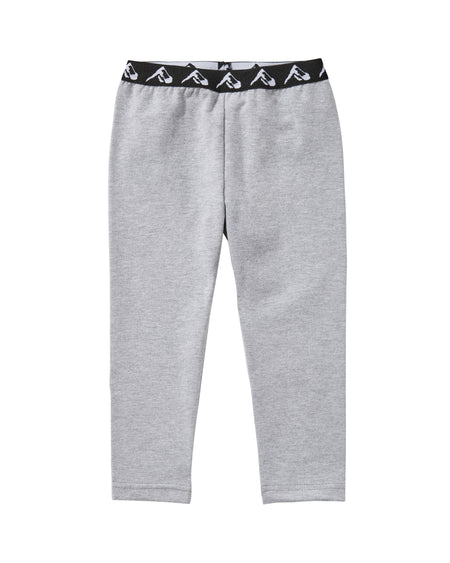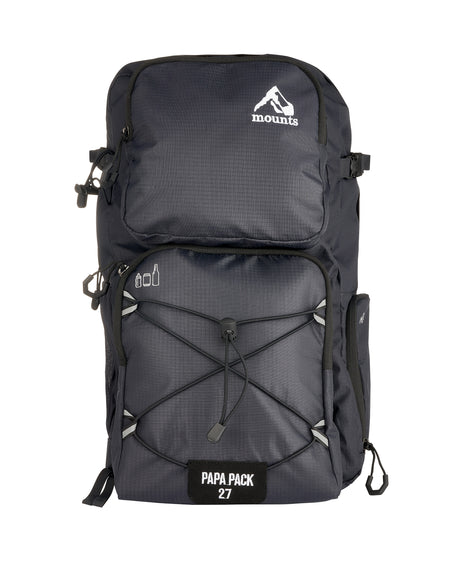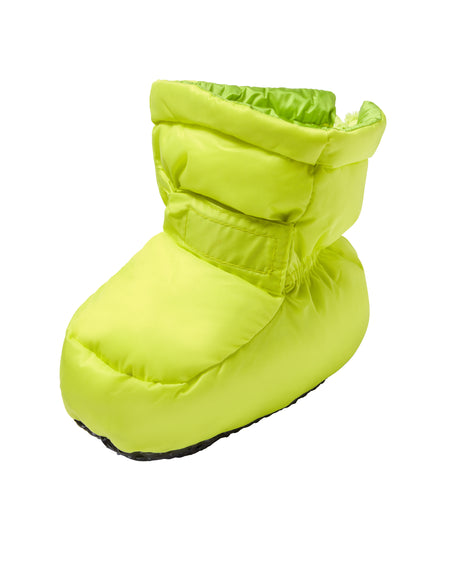10 Top Tips for Camping with a Toddler
August 30 2022 – Timothy Butcher
Mounts 10 Top Tips for Camping with a Toddler
Camping with a toddler can be a lot of fun; even if things go wrong, they'll make for good stories in a few years.
However, being prepared and knowing what to expect can be a game-changer, so we have pulled together our top 10 tips for camping with young children. We reckon this advice is equally useful for experienced campers as for newbies, and aims to support you in your wilderness adventure.

1. Pack lots of snacks and quick-to-make backup food!
Unexpected situations are – ironically – to be expected! The weather can suddenly change, campsites can take longer to find or pitch, or you can be searching for 45 min for that groundsheet you “definitely packed'”. If any of these problems get in the way of breakfast, lunch or dinner, hungry children will let you know about it. Also as we all know, snacks are a great way to buy yourself a little bit of time.
Snack tips:
- Make sure you bring snacks that don't need to be refrigerated
- Remember your little one's favourites, they’re a get-out-of-jail free card!
- Pack plenty of water

2. Be mindful of the baby's nap schedule
Ensure that the sleeping environment is calm and relaxed as it will be different to the kids' usual settings and can make them feel unsafe. Create a cosy, dark and well-ventilated area for your child to sleep in and watch for those tell-tale signs that they’re getting worn out. Allowing time in your day to observe your child's regular nap routine will make things easier, but do not obsess over the nap schedules as it can add stress to the day.
Cosy sleep tips:
- Do not pitch your tent in direct sunlight
- Avoid uneven or slanted ground
- Pitching near a water source can make things damp in the morning
- Pitch away from other campers to give yourself some peace and quiet (and vice versa)

3. How to make your kids' sleeping area warm and cosy
At-home/travel duvets, blankets, quilts and mattresses are designed for indoor use and are not rated warm enough for outdoor temperatures (see here for our slumber sack). Down duvets and jackets can hold onto moisture in the air and are not suitable for children to sleep in.
Having specific insulation from the ground is key, as this is where your little ones lose their body heat. Regular inflatable mattresses aren't suitable, as they are not insulated (see here for the sleep temperature guide) so kids will feel the cold from beneath, but don't compromise on sleep safety to make your kids cosy.
Sleep nest tips:
- Create a sleep area which is dark to avoid early wake ups.
- Ensure the ground your child is sleeping on is insulated (this can be with an insulated sleep mat or roll mat). Watch this space as we're working on something designed just for that!
- Follow the correct layering system and don't compromise on sleep safety.

4. Lay out what you're bringing and ensure it fits in your car/backpack
You will be hard-pressed to fit all the essentials needed for camping with a toddler into your old backpack. So, lay out all your kit before packing the car to make sure it all fits. Don't forget the essentials but don't overpack either!
Don't forget:
- Nappies, wipes and bottles
- Sleeping bag
- Warm pyjamas
- Insulated sleeping mat or travel cot
- Spare clothes
- Snacks
- Toys & teddies
- Nightlight (to scare away the monsters)
Leave at home:
- Changing mat
- Duvets
- Anxiety & high expectations

5. Choose a campsite with convenient access and plan your journey
When choosing your campsite, ensure that it has access which is suitable for the age bracket of your little one. Camping with a toddler? A 30 min hike to your pitch won't be the best idea. If you're planning on using a baby carrier to bring your kid, watch out for the lack of storage. You might need to make multiple trips to your transport to get all your kit out so at times, closer is better. However, this doesn't mean that you need to forgo your sense of adventure as there are many campsites which are on the wilder side but accessible.
Campsite tips:
- Choose a campsite which has easy access for those back and forth.
- Lookout for sites which are suitable in terms of hazards and dangers, a quick scout goes a long way.
- Visit our partner www.CampWild.uk for wilder campsites options which are suitable for families but keep you feeling wild.

6. Bring spare clothes, lots of them!
Campsites can be wet and grubby places, so spare clothes are always welcome. Most campsites will not have a drying room so bringing lots of changes of clothes will make your life easier. You can also bring some dry bags to put the soggy, soiled clothes in and keep them separate from the rest of your kit.
Wet clothes will quickly make your kids cold and miserable at best, or bring your kids' body temperature to dangerously low levels at worst. So have dry clothes handy, you'll thank us!
Worth noting, that natural fibres such as down and cotton will take a considerably longer time to dry than synthetic ones. Merino is great to keep your little ones warm with relatively thin layers and makes for great pyjamas. In our Sleep System, we use synthetic fleece for our PJs and we use Primaloft insulation for our sleeping bags. Primaloft doesn't get wet which makes it a better option than down for sleeping bags.
It's important to look after your kids’ feet for outdoor adventures, so closed toes and protective footwear is a must. It's also a good idea to bring inside and outside shoes to ensure you don't end up with a sleeping system full of wet and mud (no one wants that!)
Clothes top tips:
- Bring plenty of dry clothes.
- Bring dry bags to segregate your wet clothes from your dry ones.
- Ensure the clothes you are bringing are suitable for outdoor activities (look at waterproofing, quick dry and warmer synthetic insulations.
- Bring suitable shoes for your little ones, whether it's wellies, hiking shoes or closed-toe sandals, it's important to have the right kit on your kids' feet.

7. Safety first!
A good campsite usually comes with some scrapes, bruises and cuts so ensure you bring a first aid kit. At a minimum don’t forget a good box of plasters. Antihistamine, antiseptic cream and fever/pain medicine cover the most common child ailments and may be the difference between getting back into the car or staying another night.
All good camping experiences involve a fire, a stove or some type of fuel source. Be sure your child receives the safety briefing. Get them to collect firewood and congratulate them on getting the best pieces for making a ‘great’ fire. Creating boundaries without excluding them usually helps them not fight to be involved and overstep their safety.
Safety tips:
- Bring a first aid kit with the necessities for any ailments. Ensure you bring antihistamines, gels and painkillers suitable for children.
- Be mindful around fires and ensure your kids' clothing is fireproof (no princess costumes around the fire!)
- Have a scan around the site to ensure there are no real hazards such as a pond/river/cliff edge/thorns/wasp nest etc.
8. Get them a good camping tool
Getting kids excited about camping is a joyous experience. kids love stuff so if they have their own headlamp, backpack, chair, etc they will feel as if they are part of the experience, stay entertained and are more likely to make happy memories!
You could even take it a step further and find some bushcraft kids kits, or den-making kits, which will bring lots of fun for the whole family.

9. Bring toys and evening entertainment
We all know nature is a lot of fun but don't expect your kids to be ever entertained by a stick and a rock. Bring nature-inspired toys, storybooks and games, it doesn't all need to be iPads [iPads are ok in moderation, no judgement here]!
10. Bring your sense of humour and have fun!
Expect things to go wrong and you won't be disappointed. Don't forget to enjoy the wilderness and bring your sense of humour, as it'll make the whole experience much more relaxing for all.
Accept that all won't be perfect and don't panic as kids are little stress magnets and their antennas can sense the slight change in mood, playing on it or feeling upset.
Have a good laugh if things don't go according to plan! There is lots of fun to be had on the Fun Scale.
For more Mounts advice and guidance visit the MOUNTS RESOURCE CENTRE




